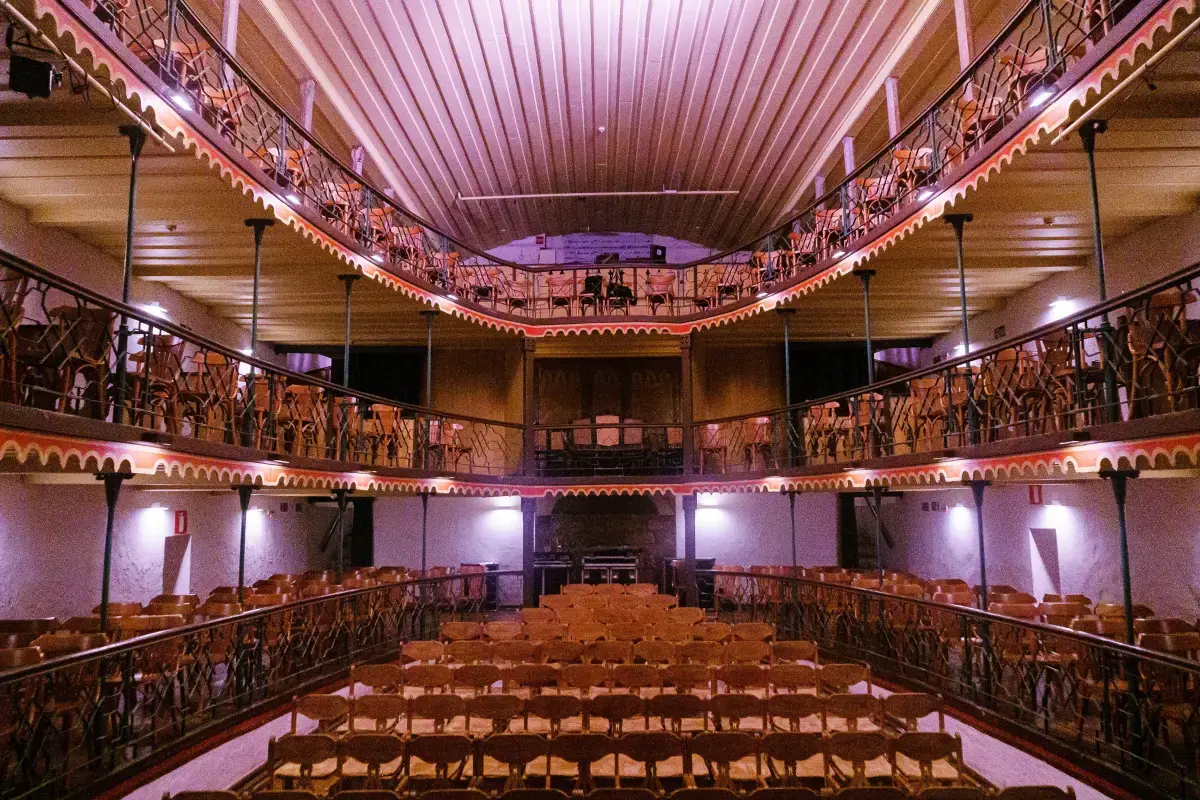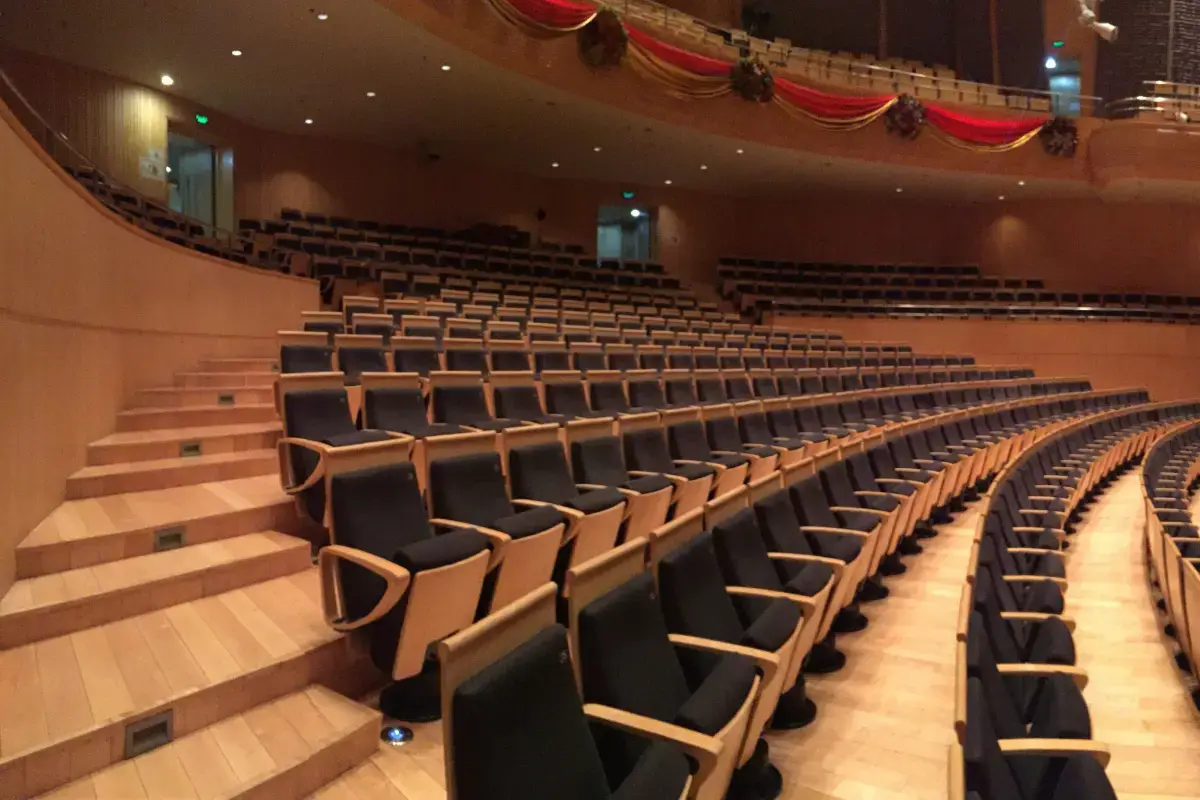
Stage Manager Job Description
What is a Stage Manager Professional?
A stage manager is a professional in the performing arts who has responsibilities for organizational and logistical aspects of producing a show. They are often considered the "fourth member" of a production team, after the writer, director, and producer. A stage manager typically works on one production at a time, but may be employed by a theatre company to work on multiple productions simultaneously. The duties of a stage manager vary depending on the type of production and venue, but generally include maintaining control over rehearsals and performances; calling cues; ensuring adherence to onstage action as called for in the script or rehearsal process; executing necessary substitutions during performance due to emergencies or unforeseen actor absences; coordinating communication between behind-the-scenes crew members (e.g. lighting designer) and onstage performers; operating special effects equipment; maintaining medical records for actors; and serving as an onstage liaison between actors and crew during performances when offstage support is needed.

What does a Stage Manager Expert do?
In addition to these duties, stage managers are also responsible for managing logistics related to load-in/strike (i.e., setting up/tearing down), tech week (i.e., final preparation before opening night), housing and transportation for touring companies, cue-to-cue sheets (i.e., list of technical cues with timings), prompt books (i.e., containing all physical elements as well as blocking notes referring to specific pages in the script), contact lists (of key personnel involved with the show), running orders (listing scene changes in order that they happen backstage), etc. Thus, while their title might suggest otherwise, stage managers actually do very little actual "managing" during performances—most of their work takes place before rehearsals even begin or after performances have ended for the night. This is not to say that being a good stage manager isnt hard work—on the contrary, it requires intense focus and concentration, excellent organizational skills, quick thinking under pressure, calm demeanor in high-stress situations, superb people skills since they must manage both cast and crew members ranging from temperamental actors to stressed-out designers—but it is nonetheless important to remember that ultimately their job is about facilitating theatre magic rather than creating it themselves.

What are the Skills of a Stage Manager?
When working on a production, the stage manager is responsible for keeping everything organized and running smoothly. This includes coordinating rehearsal schedules, managing props and set pieces, keeping track of cue sheets and performance scripts, and communicating with the director to ensure that all instructions are followed. A successful stage manager must be able to maintain a calm demeanor while dealing with stressful situations, be highly organized and detail-oriented, have excellent communication skills, and be able to think quickly on their feet.

What makes an Expert Stage Manager?
In addition to these general skills, a stage manager also needs to have experience in theatre production. This can include working backstage in crew positions such as lighting or sound technician, working as an assistant stage manager or properties master on previous productions, or having other relevant experience such as directing or producing. It is also helpful if the stage manager has some knowledge of carpentry or other technical skills that may be needed to assist with set construction or load-in/load-out.

What level of Experience & Qualifications are required to be a Stage Manager?
Industry Experience: 1. At least 5 years of experience in stage management, preferably in a professional setting. 2. Knowledge of the technical aspects of theatre production, including lighting, sound, and set design. 3. Ability to work with a variety of personnel from actors to directors to designers and technicians. 4. Understanding of the rehearsal process and how it relates to performance preparation and execution. 5. Familiarity with safety protocols for backstage areas and equipment handling procedures during performances or rehearsals. 6. Proven ability to manage multiple tasks simultaneously while maintaining focus on the overall production goals and objectives Training: 1. Training in basic first aid/CPR techniques as well as fire safety protocols is highly recommended for all stage managers regardless of experience level or venue type (theatre, film/TV). 2 Familiarity with industry-standard software programs such as Microsoft Office Suite (Word, Excel), Adobe Creative Suite (Photoshop, InDesign), etc., is also beneficial for efficient document creation/editing/sharing capabilities between departments within a production team environment Qualifications: 1 Excellent organizational skills are essential for any successful stage manager; this includes being able to prioritize tasks effectively while managing time efficiently throughout each day’s activities 2 Strong communication skills are necessary when working with various personnel involved in a production; this includes being able to clearly articulate instructions both verbally and through written documents Education: 1 A Bachelor’s degree in Theatre Arts or related field is preferred but not required; however some form of post-secondary education is recommended for those interested in pursuing a career as an expert stage manager 2 Additional courses or certifications related specifically to stage management may be beneficial depending on the type of productions one wishes to pursue

What is the Salary of a Stage Manager?
The salary expectations of a stage manager can vary greatly depending on experience, location, and the size of the production. For junior level stage managers, salaries typically range from $25,000 to $45,000 per year. This is usually for those who are just starting out in their career or have limited experience. At the mid-level range, salaries can range from $50,000 to $75,000 per year. This is for those with more experience and may be working on larger productions or in higher profile venues. Senior level stage managers can expect to make anywhere from $80,000 to over $100,000 per year depending on their experience and the size of the production they are working on. These positions often require extensive knowledge and expertise in all aspects of theatre production as well as strong leadership skills.

What are the Working Conditions for a Stage Manager?
The general working conditions for a stage manager vary depending on the type of production they are working on. Generally, stage managers work long hours and may be required to work evenings and weekends. They must be able to handle stress in high-pressure situations, as well as have excellent organizational skills. Stage managers must also have strong communication skills in order to effectively communicate with actors, directors, designers, technicians and other members of the production team. Additionally, they must be able to think quickly on their feet and problem solve any issues that arise during rehearsals or performances. Finally, stage managers should have an understanding of safety protocols in order to ensure the safety of all cast and crew members while on set or onstage.

What are the roles and responsibilities of a Stage Manager?
Managing the stage crew and giving them cue to set changes or props as needed
Checking the state of the stage and props before each performance
Making sure that any necessary repairs are made in a timely manner
Communicating with other members of the production team to ensure that everyone is on the same page
ensuring cast knows where they need to be and when
Calling half-hour, five minute, and places cues during rehearsals and performances
Serving as producers right-hand person during the rehearsal process
Assisting with casting decisions
Supervising load-in and load-out of scenery and props
Acting as liaison between front of house staff and backstage crew
Keeping track of costume changes during performances
Managing hair/makeup if there is no separate head responsible for that
Placing microphones on actors
Helping with prop placement onstage
Distributing scripts to cast members
Posting rehearsal schedules
Callingctors for their entrance cues
Cross covering various duties throughout rehearsal process such as following blocking or fights choreography
Assist ASM’s with line notes 20 Putting up signage for exits

Where can I find Stage Manager jobs?
- Create a profile on gigexchange and promote your Stage Manager skills to advertise you are Open to New Work Opportunities
- Ensure your Resume (or CV), or online work profile is up to date and represents your skills and experience. Ensure your reputation reflects your ability & attitude.
- Apply for Stage Manager Jobs advertised on gigexchange.
- Practise Stage Manager interview techniques to ensure you represent your personality and ability succinctly and confidently.
- Accept the job offer if the salary meets your expectations and the employer mission and purpose reflects your core values.
Jobs
What are the best job boards for Impresario jobs?

How can I hire Stage Manager staff online for my business?
The best job board for recruiting Stage Manager experts is gigexchange.com. Advertise full-time, part-time or contract jobs to find, hire & recruit trusted, experienced and talented Stage Manager candidates near you.

Are Stage Manager roles in demand in 2026?
Stage Manager experts are still in high demand in 2026. If you are an experienced Stage Manager or looking to train and become one. The job market is looking strong for Stage Manager jobs near me.